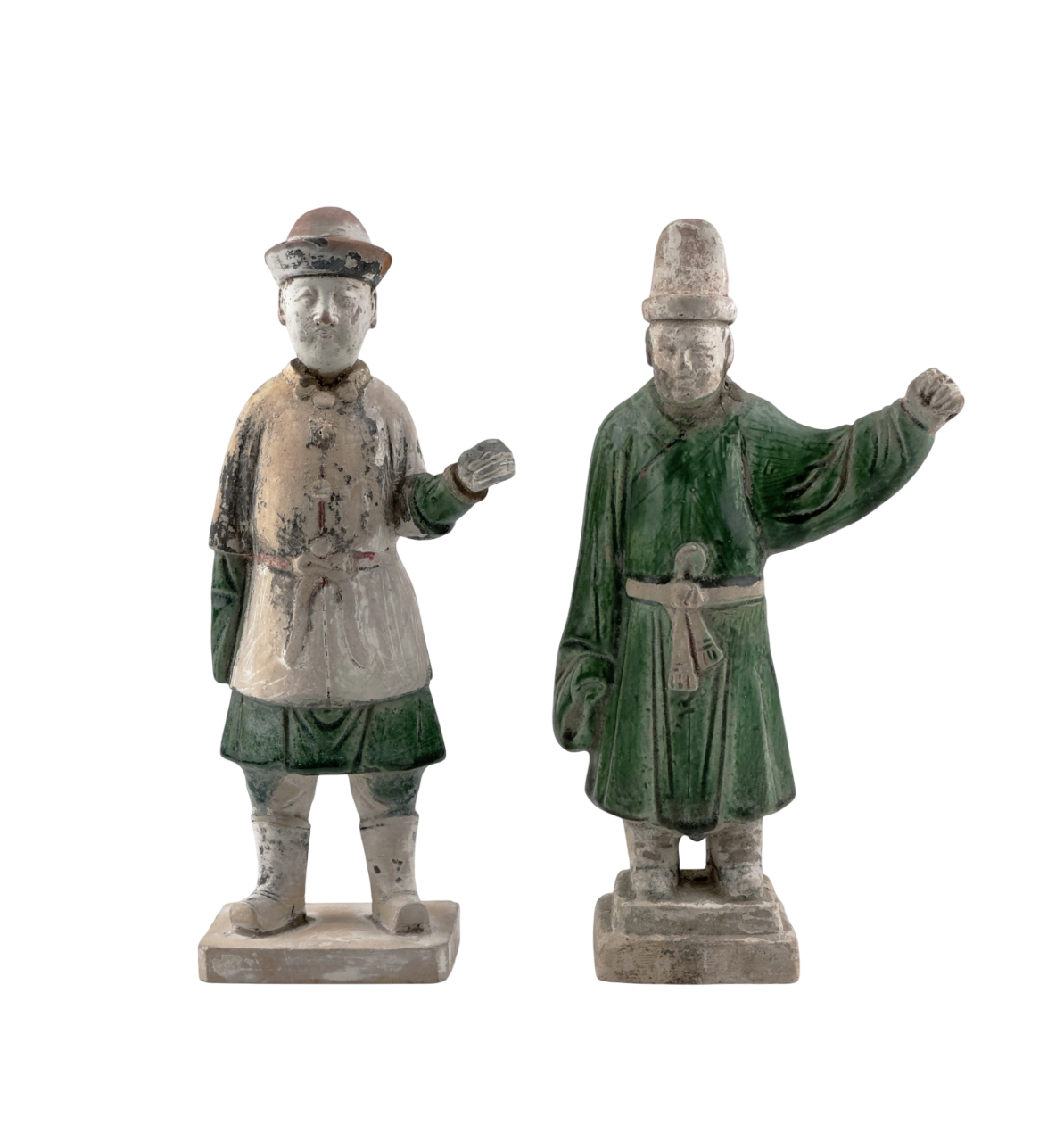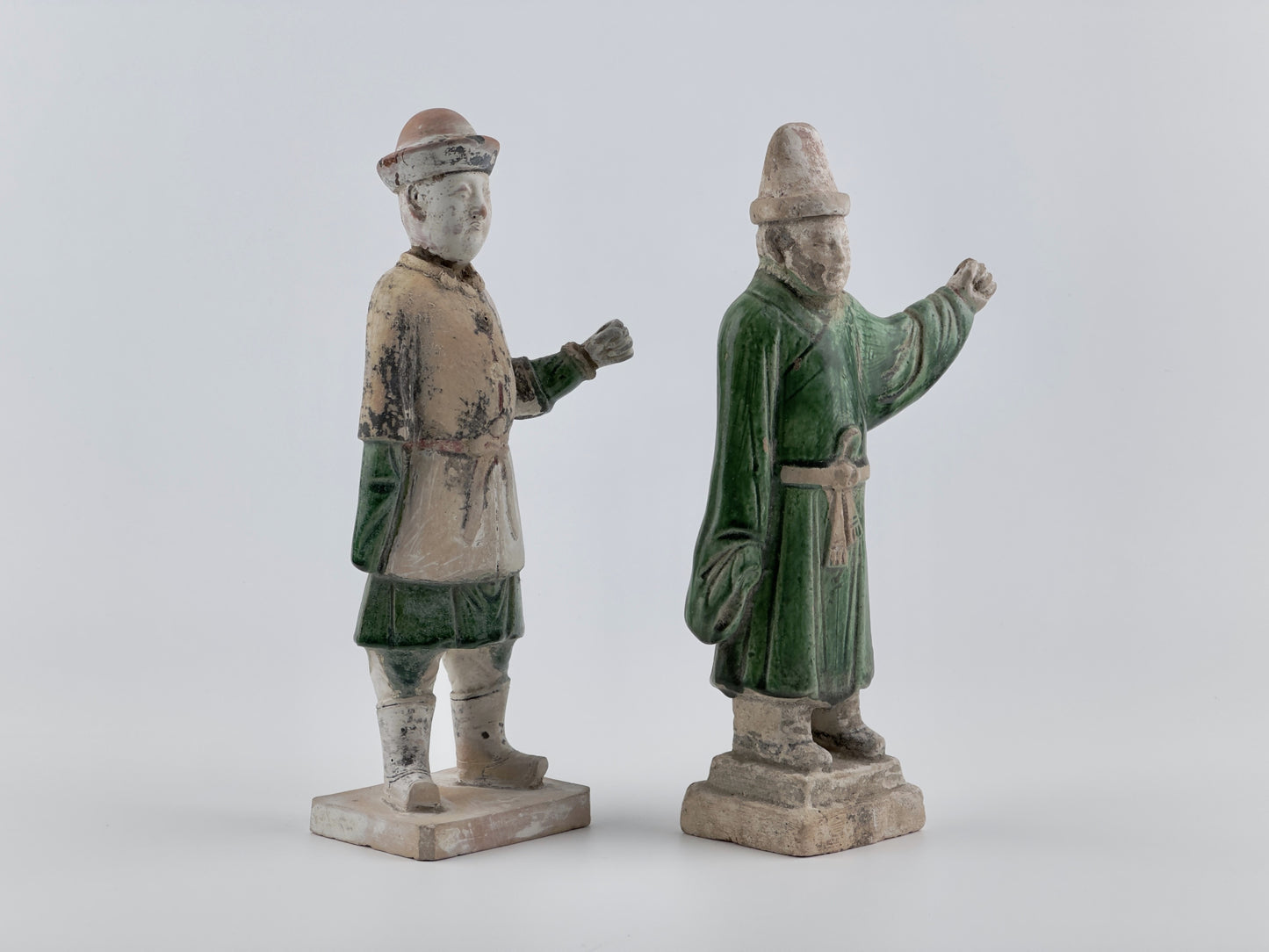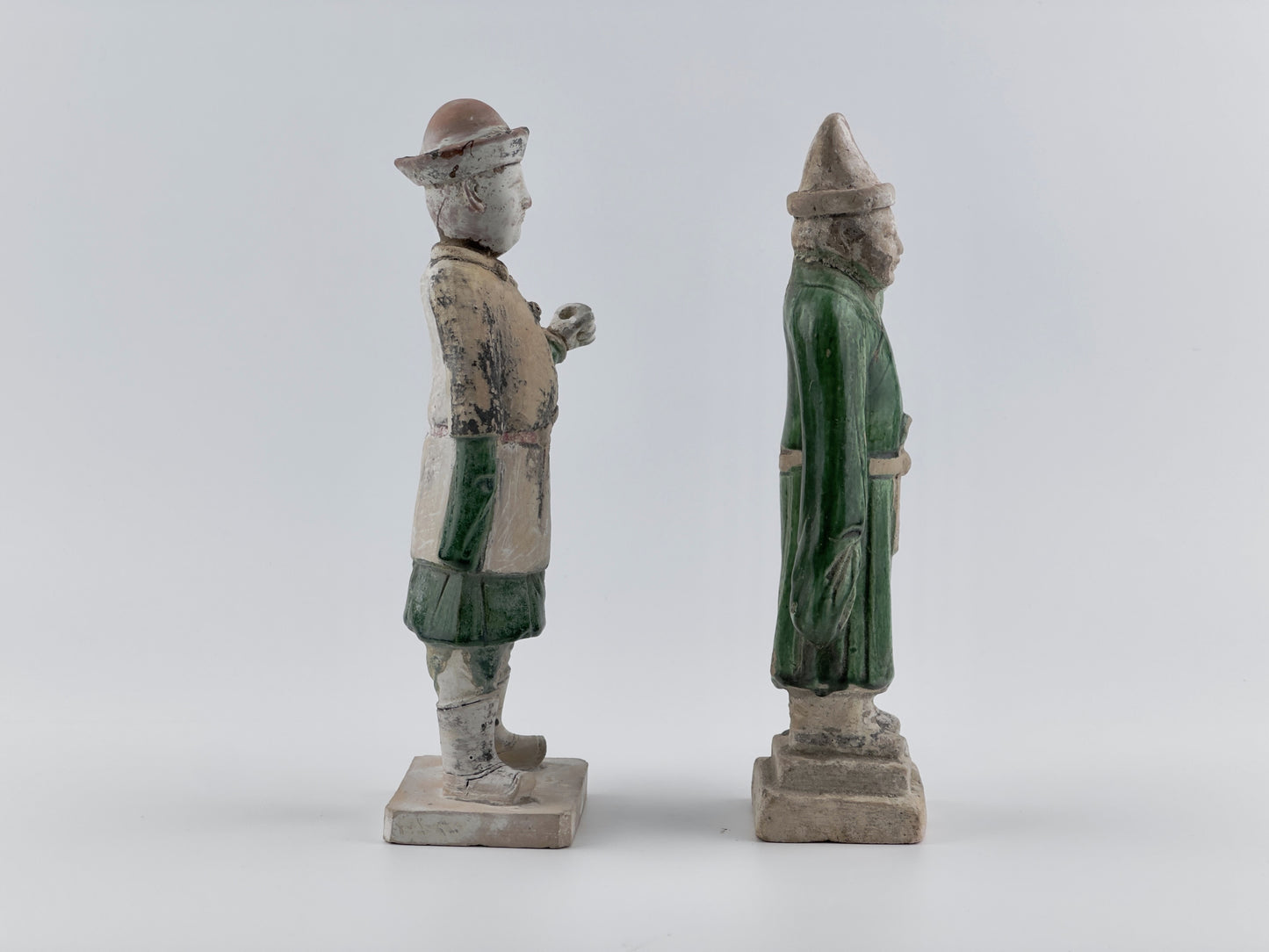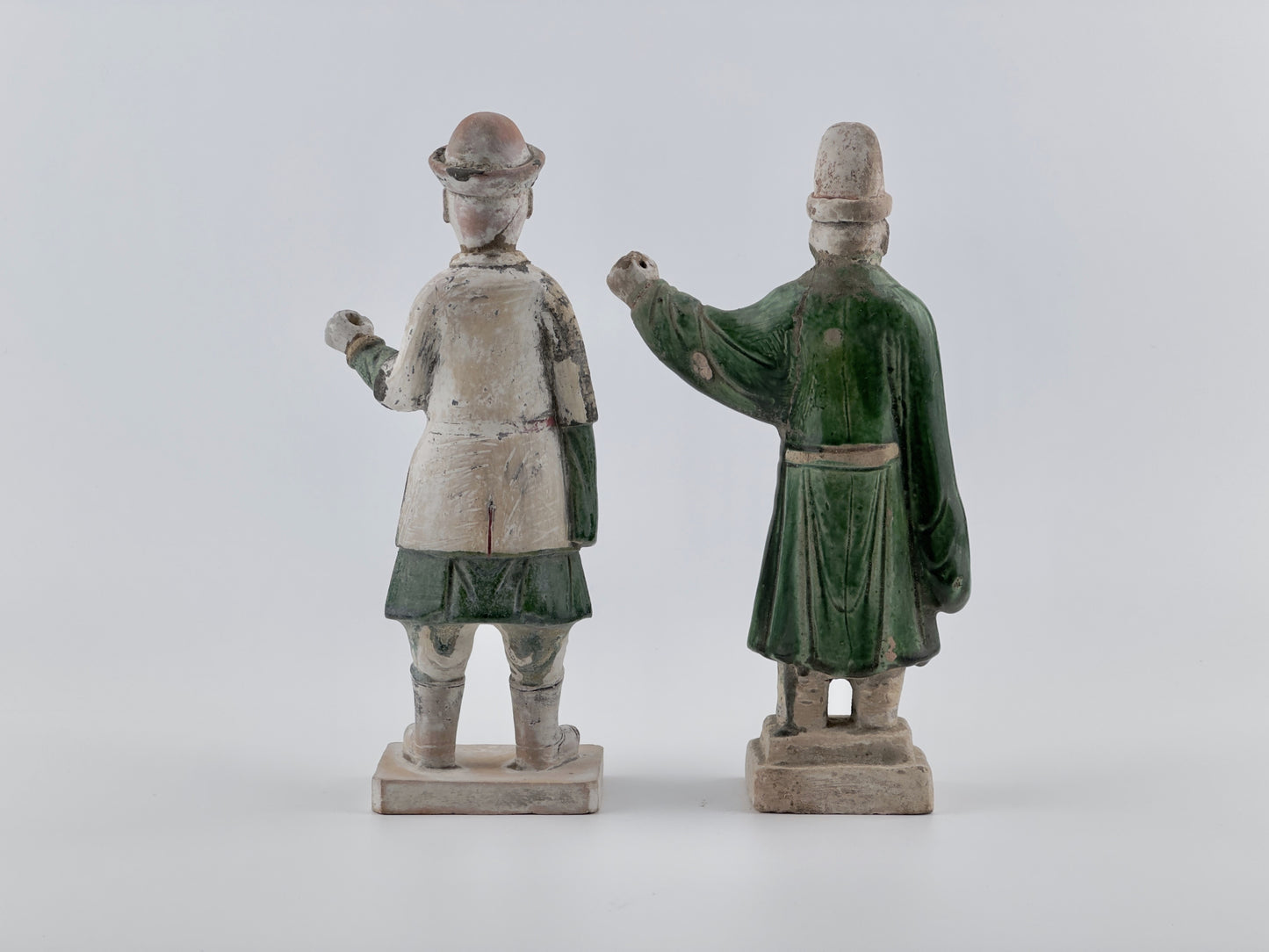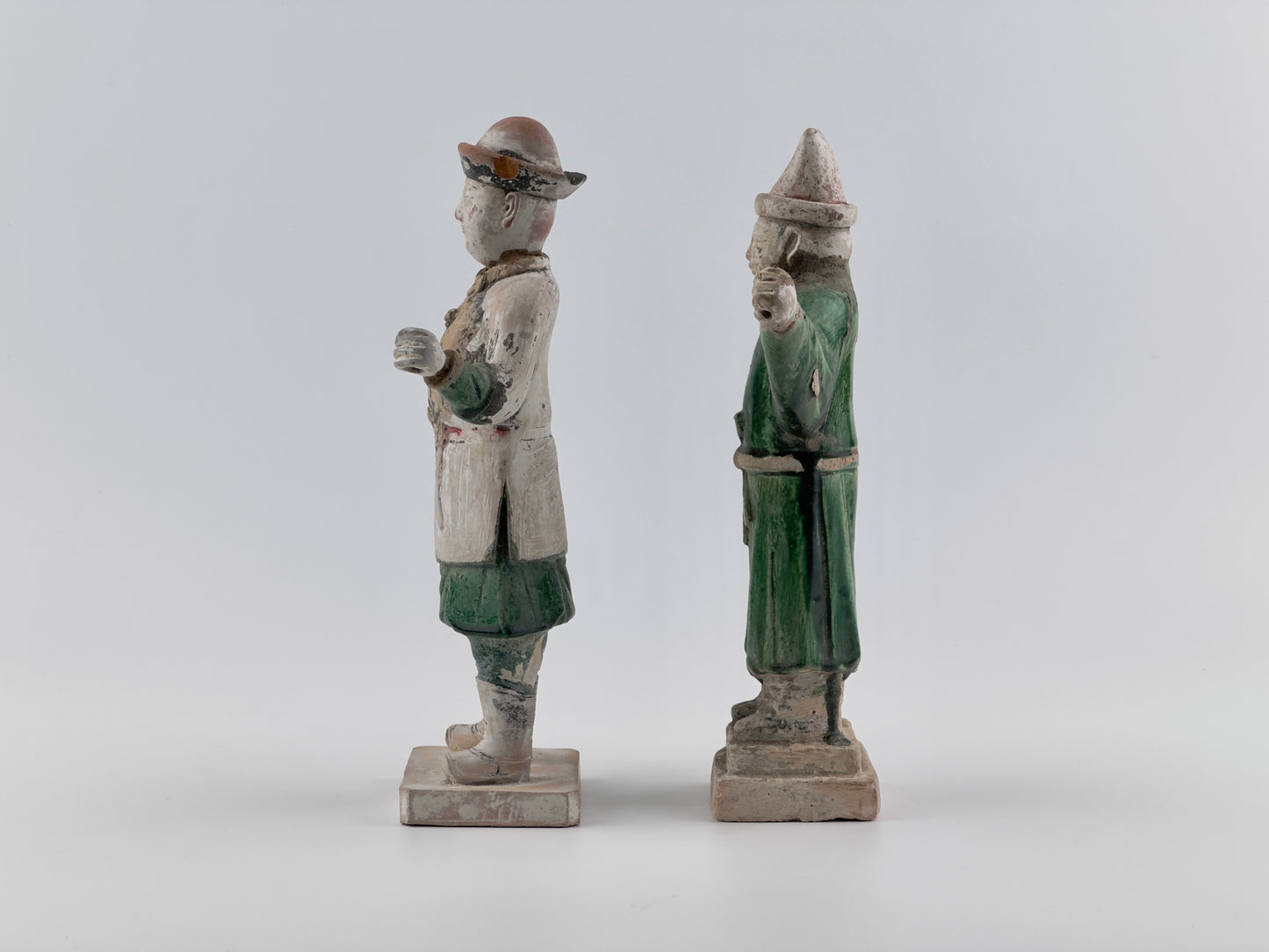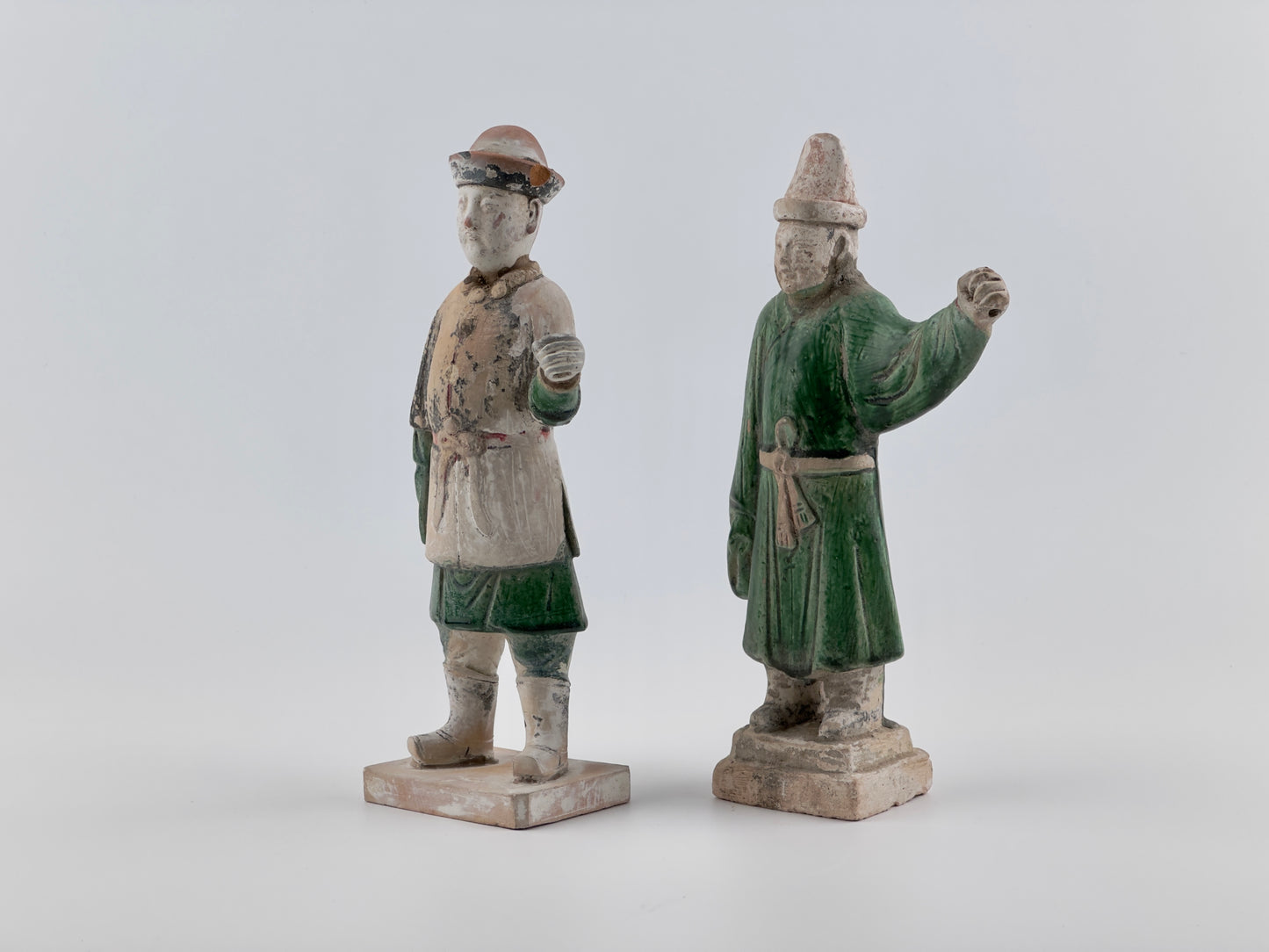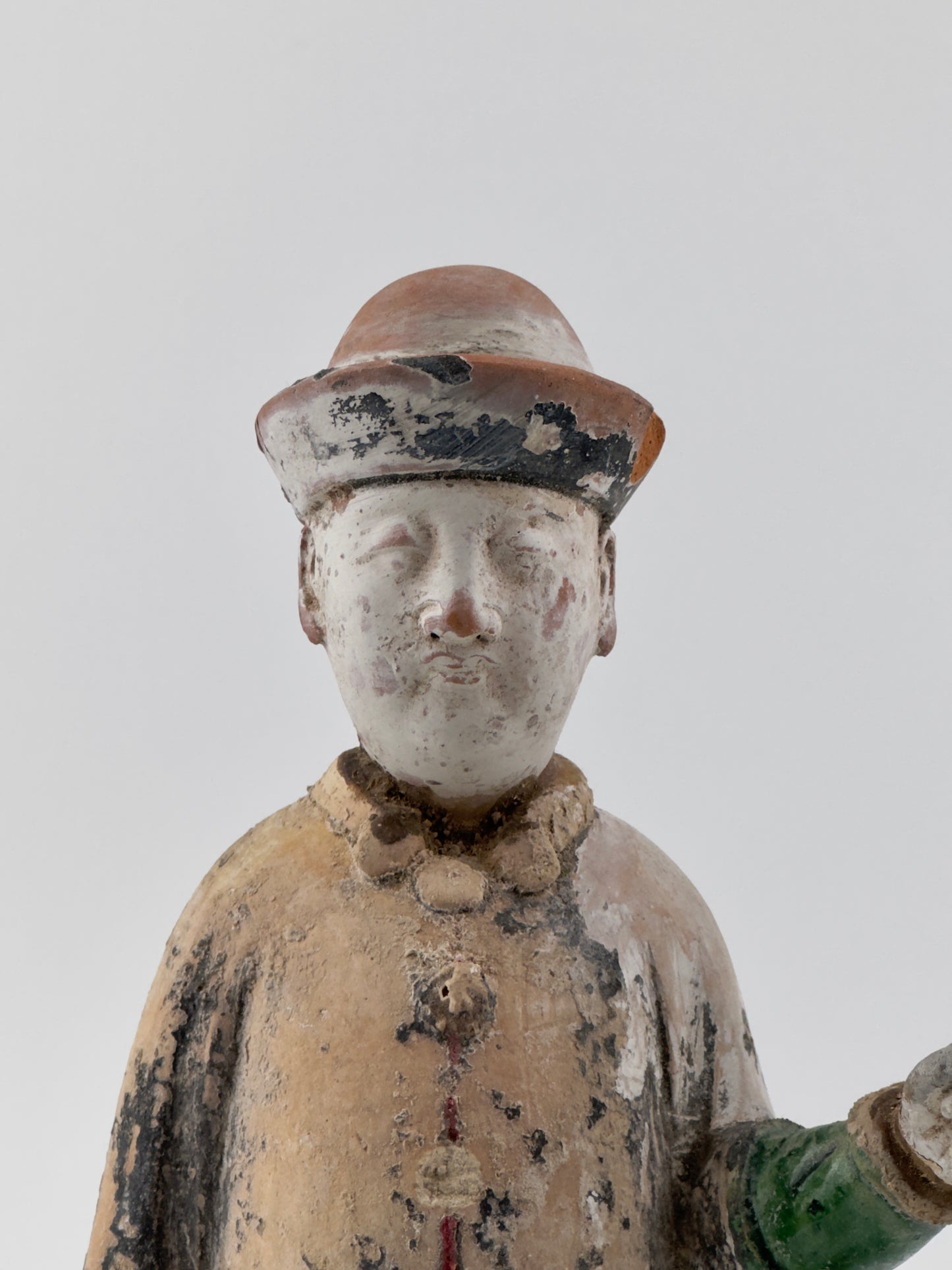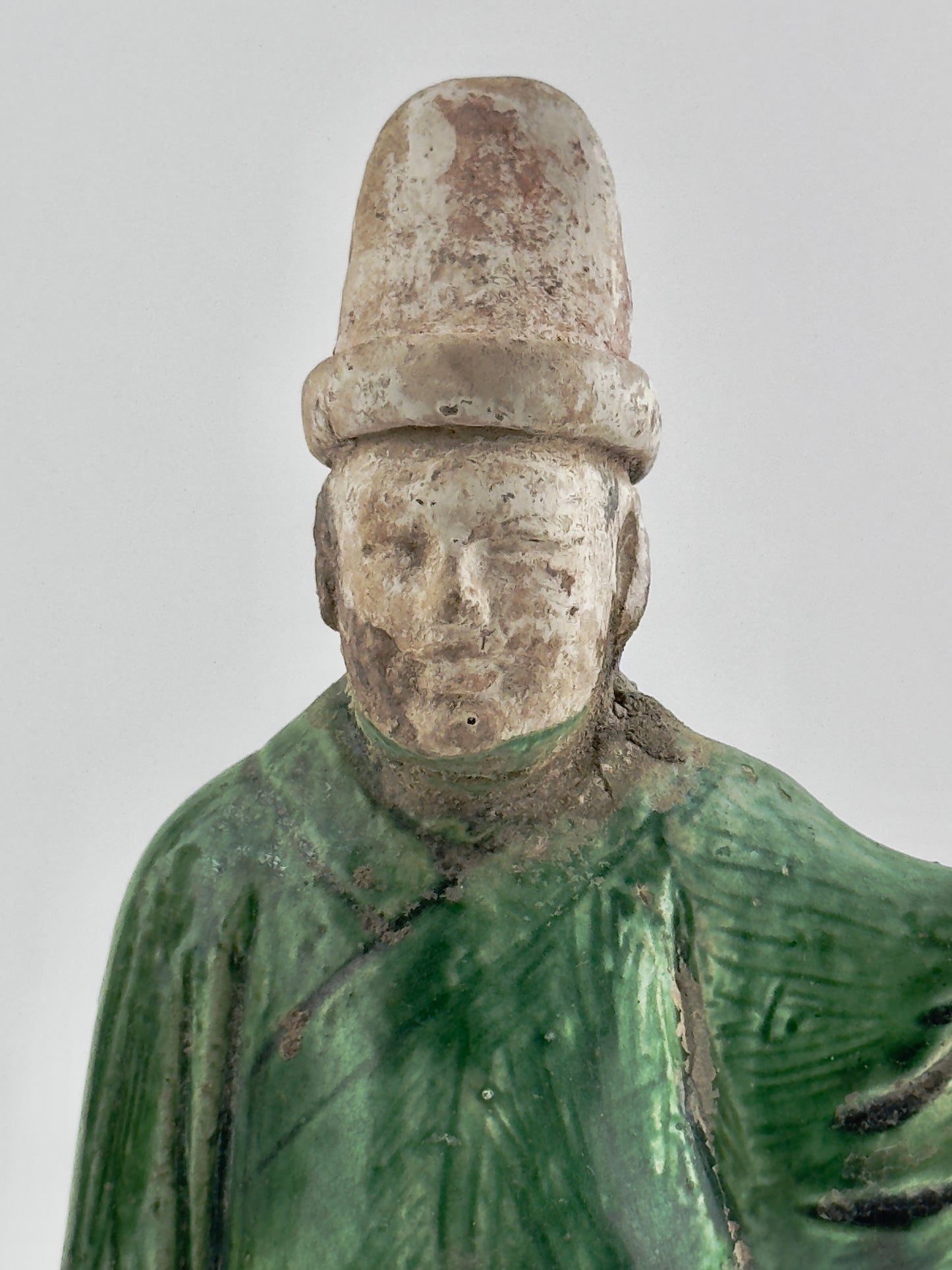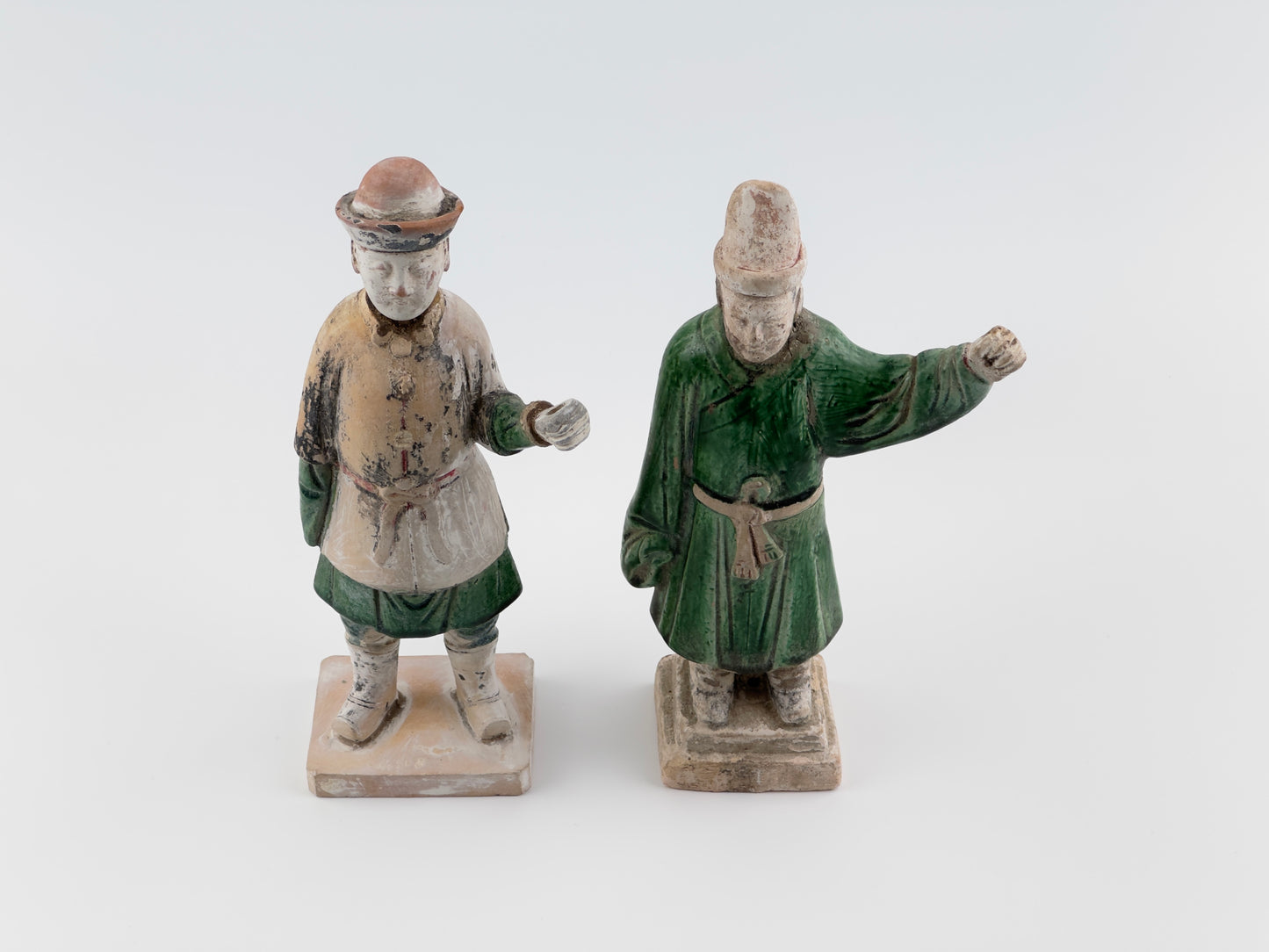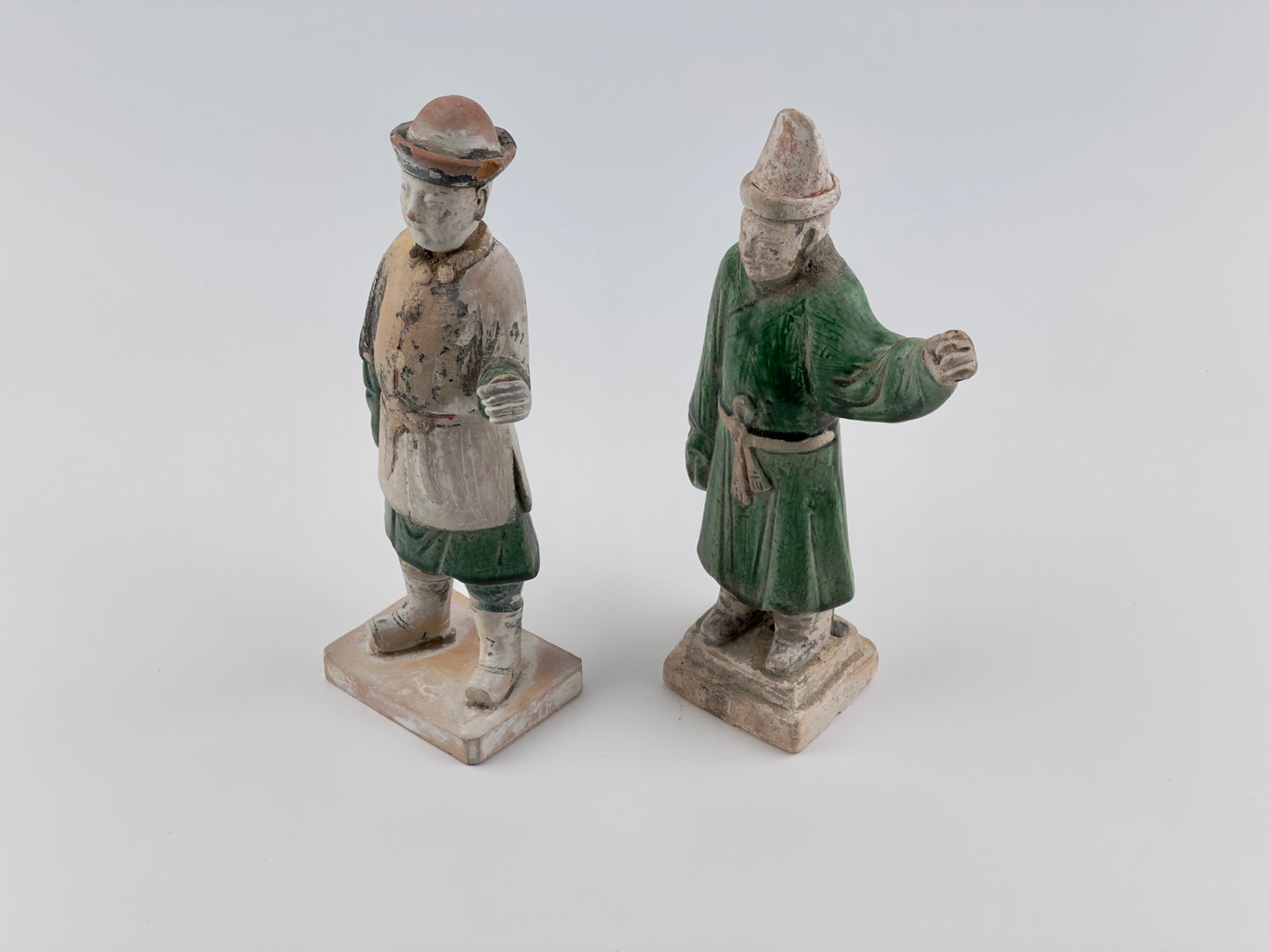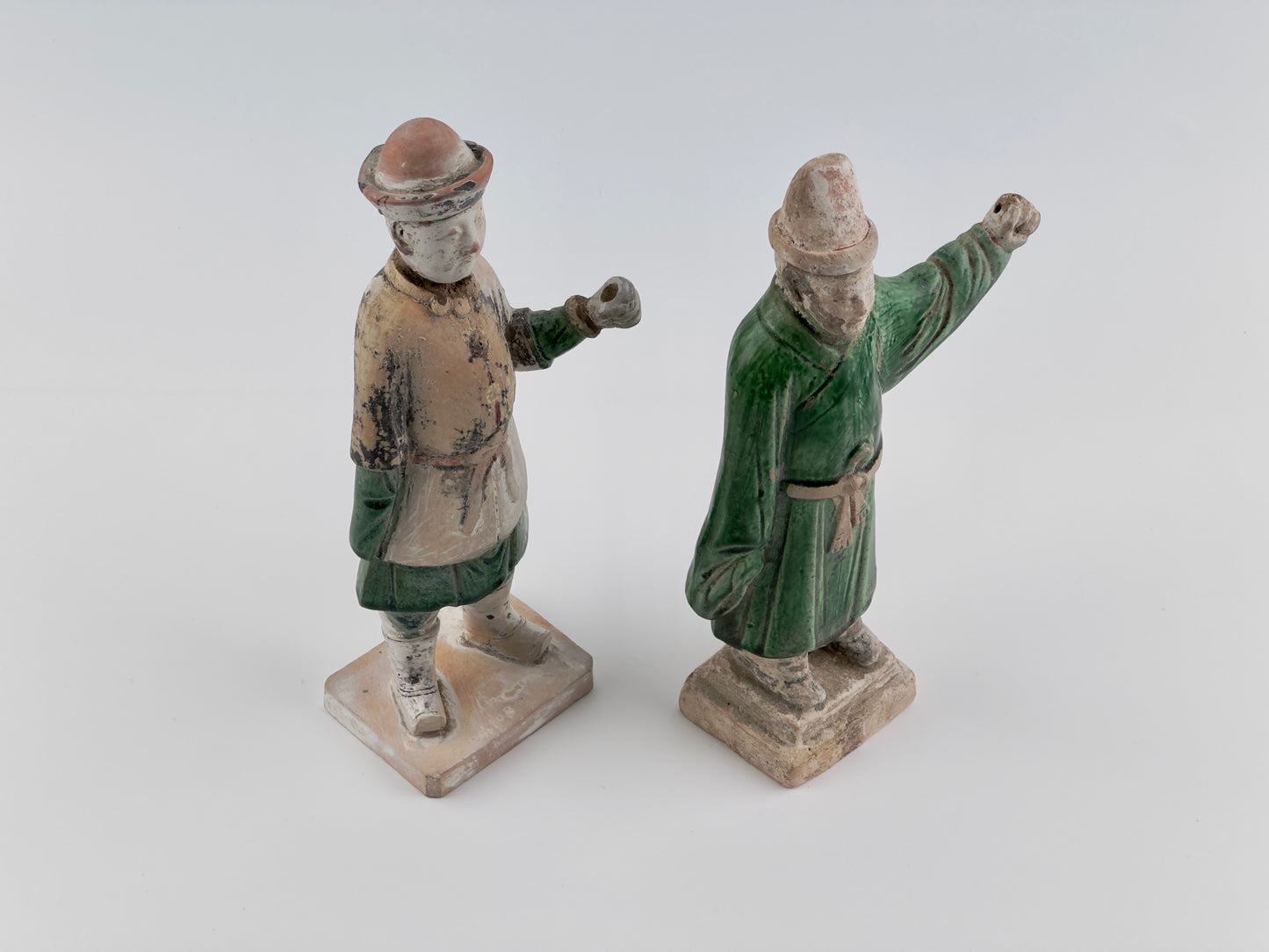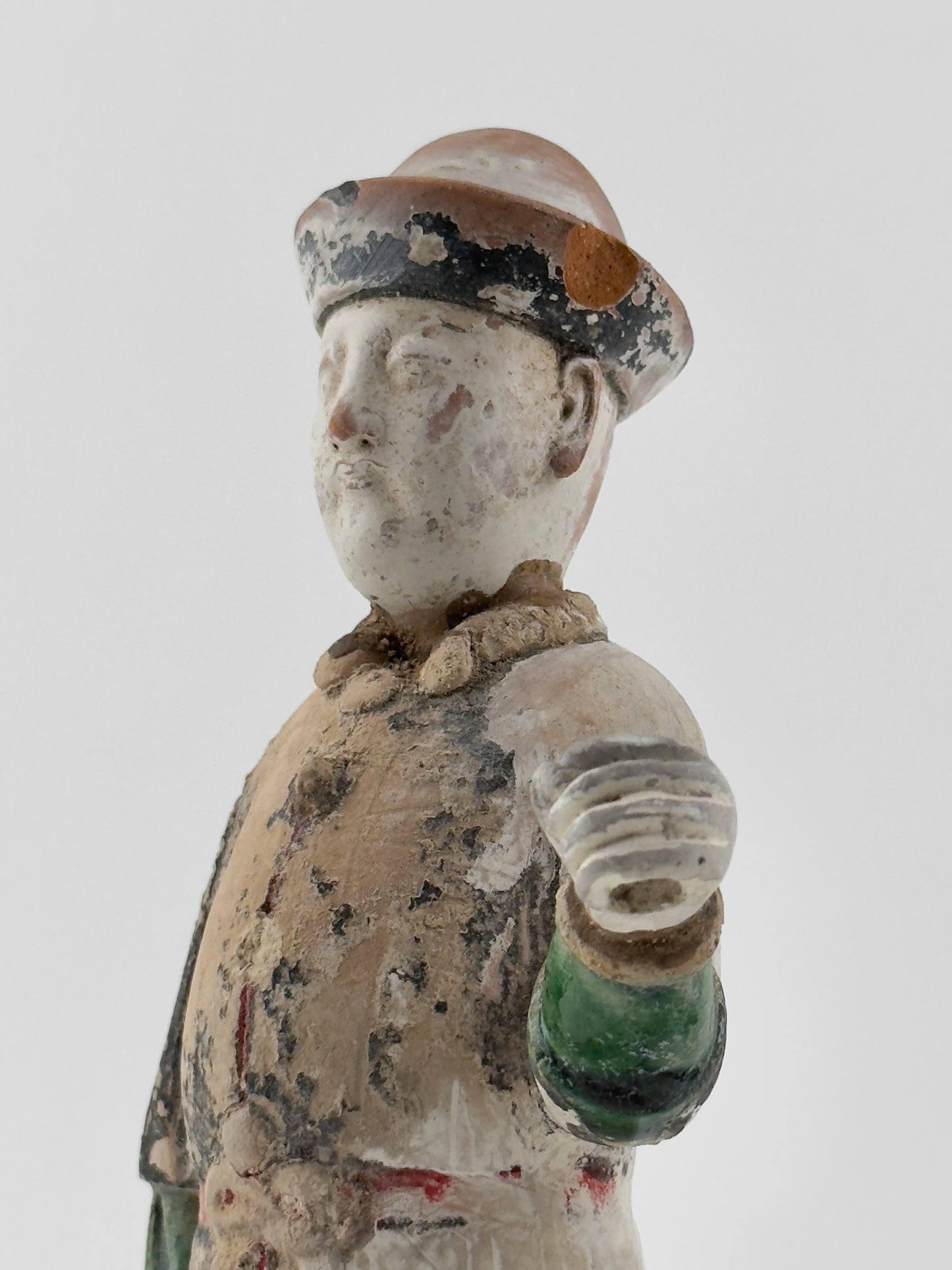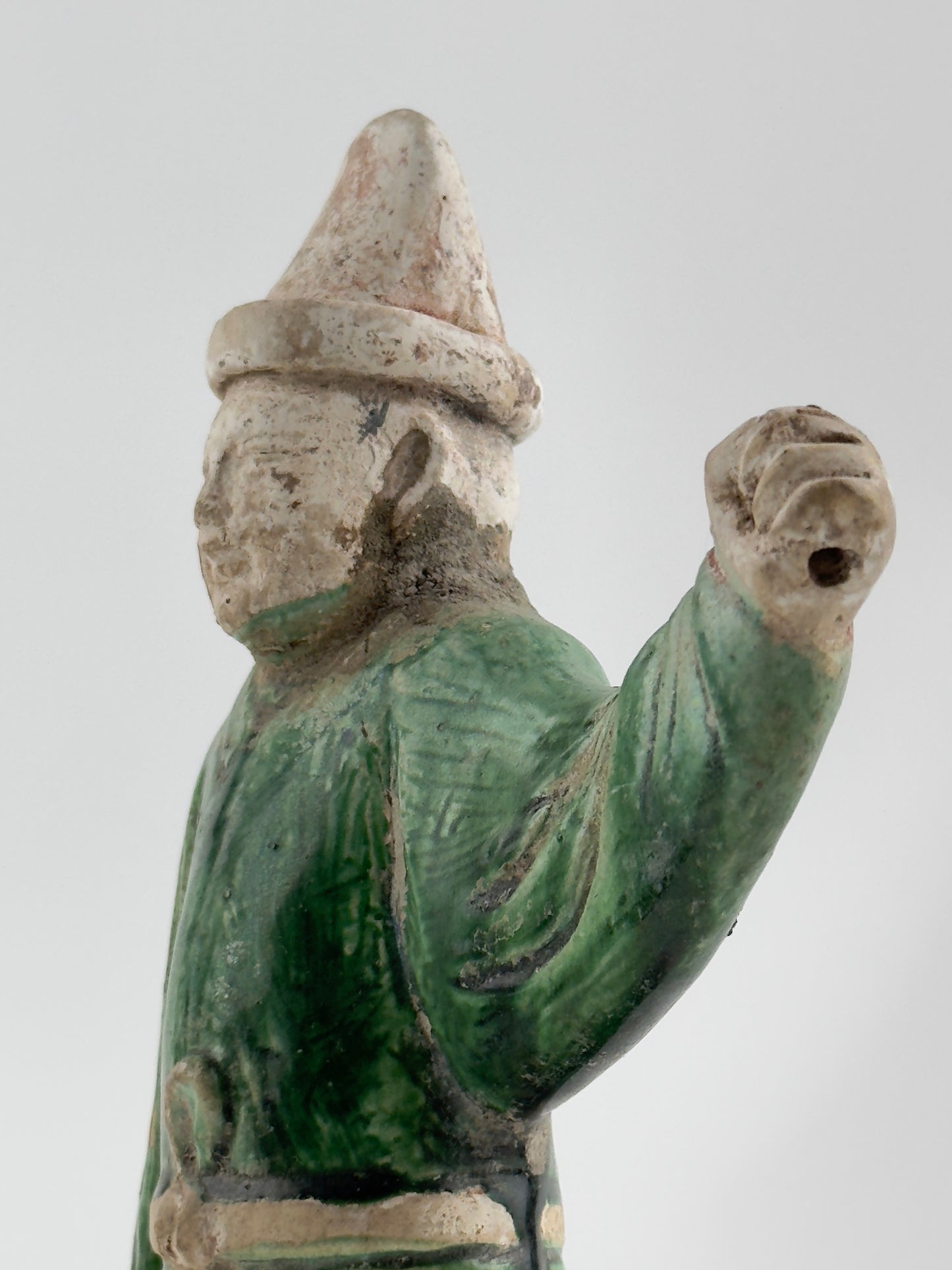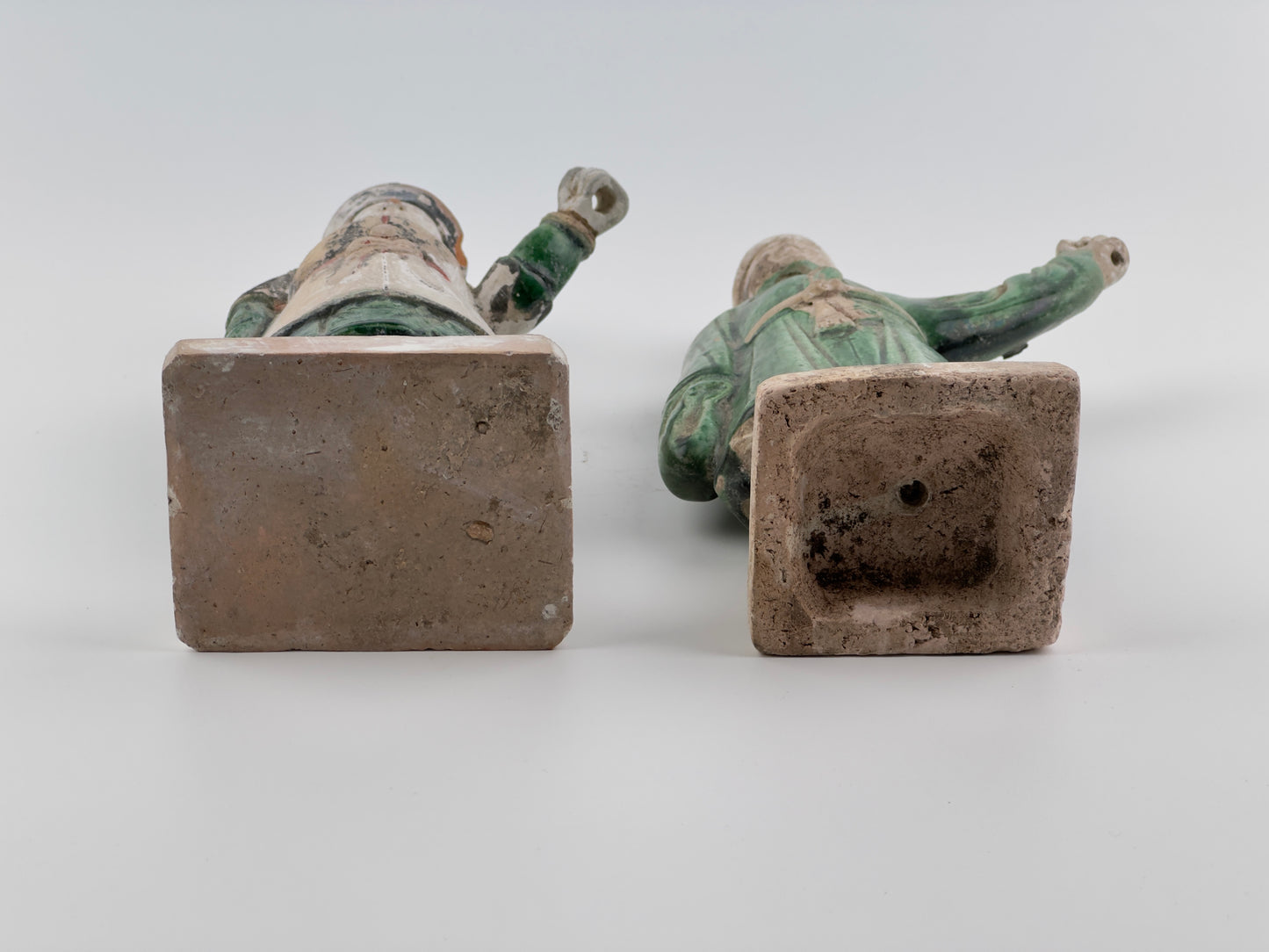Two Figures of Attendants, Ming Period(1368-1644)
Two Figures of Attendants, Ming Period(1368-1644)
Couldn't load pickup availability
Statues of attendants crafted from terracotta, featuring glazes in green, Set on rectangular bases.
Period: Ming Dynasty
Medium: Glazed Pottery
Type: Figure
Size : 12cm(Diameter) x 23cm(Height)
Condition : Excellent(The piece has not had the soil removed, as some collectors prefer it in its original condition.)
Provenance : Acquired in late 1990s from Hongkong
Reference :
1) Indianapolis Museum of Art - Dinastia ming, figure maschili, 1368-1644
(Type : Closely related)
https://commons.wikimedia.org/wiki/File:Dinastia_ming,_figure_maschili,_1368-1644.jpg
2) V&A Museum - Accession number FE.295:1, 2-2005
(Type : Closely related)
https://collections.vam.ac.uk/item/O125895/tomb-figure-figure-unknown/
3) Sotheby's 01 May 2007 - The Collection Of Paul Otto Taubert & Jewellery And Decorative Arts - Lot 233
(Price range : 5,000 - 7,000 AUD / Type : Closely related)
https://www.sothebys.com/en/auctions/ecatalogue/2007/the-collection-of-paul-otto-taubert-jewellery-and-decorative-arts-au0710/lot.233.html
4) Asian Art Museum, San Francisco - Object number B60P1631 - Standing Man Tomb Figure
https://searchcollection.asianart.org/objects/5757/standing-man-tomb-figure
* Ming Dynasty Glazed Pottery Figures
Ming Dynasty glazed pottery figures are renowned for their bold color palette, intricate detailing, and lifelike forms, distinguishing them from earlier traditions. These figures, which depict officials, warriors, animals, and mythical creatures, are characterized by high-gloss lead-based glazes in green, amber, ochre, and sancai (three-color) combinations. The thickly applied glaze pools in recesses, creating depth and enhancing sculptural details. With dynamic postures, expressive facial features, and meticulously rendered drapery, these figures reflect the period’s advancement in ceramic craftsmanship, offering a greater sense of movement and realism compared to the rigid and stylized forms of earlier dynasties.
A defining characteristic of Ming glazed pottery is its elaborate surface detailing, often achieved through raised relief elements and contrasting glazes. Equestrian figures, for example, feature carefully sculpted saddles, harnesses, and decorative embellishments, while human figures are adorned with intricate robes and headdresses. The large scale of these tomb figures, often more imposing than those from previous periods, underscores the increasing importance of funerary art during the Ming era. Unlike later Qing Dynasty figures, which emphasize overglaze enamel decorations and famille-rose palettes, Ming glazed figures maintain a rich, saturated aesthetic, demonstrating the technical mastery of high-fired ceramics. Their sturdy construction and vibrant finishes ensure a lasting visual impact, making them some of the most remarkable works in Chinese ceramic history.
